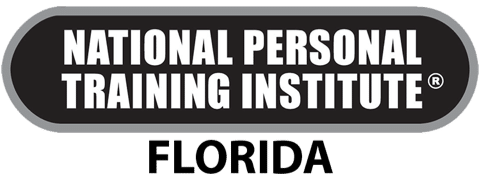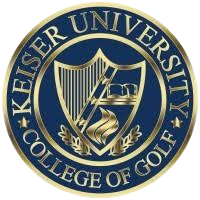
Financial aid (may be available)

Financial aid (may be available)

Financial aid (may be available)

Financial aid (may be available)

$4,750 to start
$9,500 total

No cost info

No cost info
No cost info
$23,297 total
$4,299 total
$16 total
$600 total
$1,597 total
$649 total
No cost info
$1,597 total
$1,949 total
Are you interested in pursuing a career in nutrition? Applied Nutrition classes can provide you with the knowledge and skills you need to succeed in this field. Whether you're passionate about helping others achieve their health goals or want to improve your own well-being, a career in applied nutrition can be rewarding and fulfilling.
In this blog post, we'll explore what applied nutrition is, the training requirements to become a nutritionist, what to look for in a class, what to expect from day-to-day coursework, the certification process, how to find related jobs, and other classes you can take after becoming an applied nutritionist.
Applied nutrition is a field that focuses on the practical application of nutrition science to promote health and prevent disease. As an applied nutritionist, you will work with individuals or groups to develop personalized nutrition plans, educate them about healthy eating habits, and monitor their progress towards their health goals.

Applied nutrition is a multidisciplinary field that combines principles of biology, chemistry, physiology, and psychology to understand how nutrients affect human health. It involves studying the role of various nutrients in the body, assessing dietary needs, and designing nutrition plans to meet those needs.
To become an applied nutritionist, you will need to complete a formal education program in nutrition or a related field. Most programs require a minimum of a bachelor's degree in nutrition, dietetics, or a related field. Some programs may also require additional coursework in areas such as biology, chemistry, and anatomy.
In addition to formal education, many applied nutritionists choose to become certified through a professional organization such as the Board for Certification of Nutrition Specialists (BCNS) or the Commission on Dietetic Registration (CDR). Certification is not always required, but it can enhance your credibility and job prospects.
When searching for applied nutrition classes near you in North Port, there are a few key factors to consider:
Accreditation: Ensure that the program you choose is accredited by a reputable accrediting body. This ensures that the program meets certain quality standards and that your education will be recognized by employers and professional organizations.
Curriculum: Review the curriculum to ensure that the program covers the topics and skills you need to succeed as an applied nutritionist. Look for courses in nutrition science, biochemistry, physiology, and food science.
Practical Experience: Consider programs that offer hands-on practical experience, such as internships or clinical rotations. This will provide you with valuable real-world experience and help you develop the skills necessary to work with clients effectively.
In an applied nutrition class, you can expect to learn about a wide range of topics related to nutrition and health. Some of the subjects you may study include:
Nutrient metabolism: Learn how the body processes and utilizes various nutrients, including carbohydrates, proteins, fats, vitamins, and minerals.
Dietary assessment: Develop skills in assessing an individual's dietary intake and identifying areas for improvement.
Meal planning: Learn how to develop personalized meal plans that meet an individual's nutritional needs and health goals.
Counseling techniques: Develop effective communication and counseling skills to help clients make positive changes in their eating habits.
The certification process for applied nutritionists varies depending on the professional organization you choose to become certified through. Generally, the process involves:
Meeting the educational requirements: This typically includes completing a bachelor's degree or higher in nutrition or a related field.
Gaining practical experience: Many certification organizations require a certain number of supervised practice hours or an internship.
Passing an exam: You will need to pass a certification exam to demonstrate your knowledge and competency in the field of applied nutrition.
After completing your applied nutrition training and obtaining certification, you may be wondering what career opportunities are available to you. Here are some potential job titles and settings for applied nutritionists:
Clinical nutritionist: Work in hospitals, clinics, or other healthcare settings to provide nutrition therapy to patients with specific medical conditions.
Community nutritionist: Work in community health centers or government agencies to promote healthy eating habits and prevent disease at the population level.
Sports nutritionist: Work with athletes and sports teams to develop nutrition plans that optimize performance and enhance recovery.
Wellness coach: Provide individual or group coaching to help clients achieve their health and wellness goals through nutrition and lifestyle changes.
Once you've become an applied nutritionist, you may choose to further specialize or expand your knowledge in a specific area. Some additional classes or certifications you may consider include:
Sports nutrition: Learn how to optimize nutrition for athletes and active individuals.
Pediatric nutrition: Focus on the unique nutritional needs of infants, children, and adolescents.
Geriatric nutrition: Learn how to address the specific nutritional challenges faced by older adults.
Plant-based nutrition: Gain expertise in the benefits and challenges of a plant-based diet.
If you're passionate about nutrition and helping others lead healthier lives, pursuing a career in applied nutrition can be a great choice. By completing the necessary education and training, you can become a qualified applied nutritionist and make a positive impact on the lives of others.
To find applied nutrition classes near you in North Port or explore other vocational training programs, visit Dreambound. Dreambound is the largest platform for students to find vocational training programs, such as allied health or industrial trades. Their mission is to provide all the information students need to find the perfect class.
Dreambound has put together numerous guides to help you navigate the certification process in this field, tailored for various cities. For insights into the process or requirements in other states, see some of our additional guides below.
Contemplating a transition in your career or exploring various professional paths? Dreambound has written comprehensive guides on nearly every type of program to aid you in your decision.
Dreambound's platform allows prospective students to find the right educational program for them through searching, filtering, and connecting with our extensive selection of career & technical education partners.
Dreambound has over 70 programs across healthcare, technology, business, and industrial trades. This includes programs such as Medical Billing, Cybersecurity, and welding.
Some of our schools offer financial aid for those who qualify. Many others offer payment plans, where you can pay the cost of class over time.
Yes, Dreambound offers many online programs. On Dreambound's search, you can filter by online, in-person, and hybrid (part online, part in-person).
Dreambound is completely free for you to use! We are supported by schools and organizations who pay to advertise on our website, so we can offer all of our career resources for free.